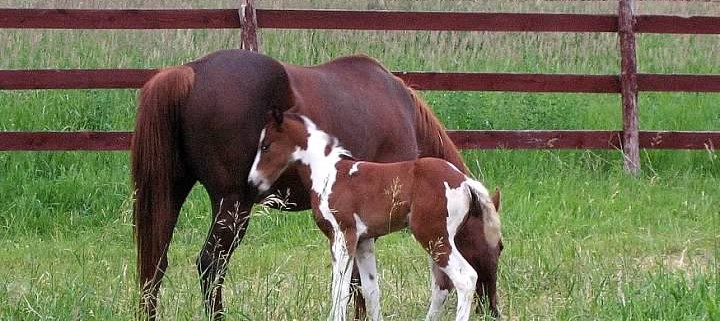Parasites in Horses
If you have ever taken care of a horse, you know anti-parasite practices are part of normal horse-care. Parasites are small creatures that live off of your horse for their nourishment. Some parasites like ticks are external, while others like worms are internal and botflies can be both! Minor parasite infestations are very common and easily treated. Left untreated the parasites will continue to breed and multiply which can lead to GI distress, poor coat condition, colic, and damage to the lungs or blood vessels.
Ticks
Ticks come in a variety of sizes and colors. Some can be as large as a pea and easily spotted while others are very small. If your horse spends time on pasture or if you ride in fields & wooded areas it is a good idea to check them all over for ticks on a regular basis. Feel all over your horse’s body for any small bumps and take a good look to make sure your horse is tick free. If you do see a tick, remove it with tweezers or a tick removal tool. When ticks latch onto your dog’s skin they imbed their head into the dog’s flesh so you need to make sure you get the entire tick out and kill it. Ticks can attach themselves to humans too so if you live in an area with a lot of ticks be careful to check yourself as well!
Worms
Horses can get worms from their grazing environment or from the feces of other horses. There is a wide variety of types of worms that can infect your horse including roundworms, tapeworms, strongyles, threadworms, filarids, lungworms and pinworms. Most worms grow and reproduce within the GI tract where they can damage internal tissue and surrounding blood vessels leading to amenia, weakness, diarrhea or colic. Most worms can be prevented by keeping your horse on a regular deworming schedule.
Bots
Botflies are insects that lay their little yellow eggs on your horse’s fur, usually around their legs, ears or face. Horses ingest the eggs from usual grooming and rubbing behavior and the eggs work their way down the GI tract into the stomach where the larva grow. Large infestations can cause GI distress because the larva take up space in the GI tract. In the spring the fully grown larva pass out of the horse’s body in feces where the adult flies hatch.
Regular veterinary exams will help protect your horse from serious parasite infection because your vet will be able to detect any problems before they get too large. Since many parasites are shed in feces, good manure removal is key to preventing parasites in your pastures. Feeding hay in nets and grain in buckets is another way to keep horse’s mouths away from manure. Preventative medications are a good way to help prevent parasites, but they are not 100% effective as many parasites are evolving resistance, so still be sure to keep an eye out for symptoms of parasites!
Studies
Strongyle infections and parasitic control strategies in German horses – a risk assessment.
Anthelmintic resistance in equine nematodes.
Anthelmintic efficacy on parascaris equorum in foals on Swedish studs.
SvSXP: a strongylus vulgaris antigen with potential for prepatent diagnosis.
The strongylidae belonging to strongylus genus in horses from southeastern Poland.


